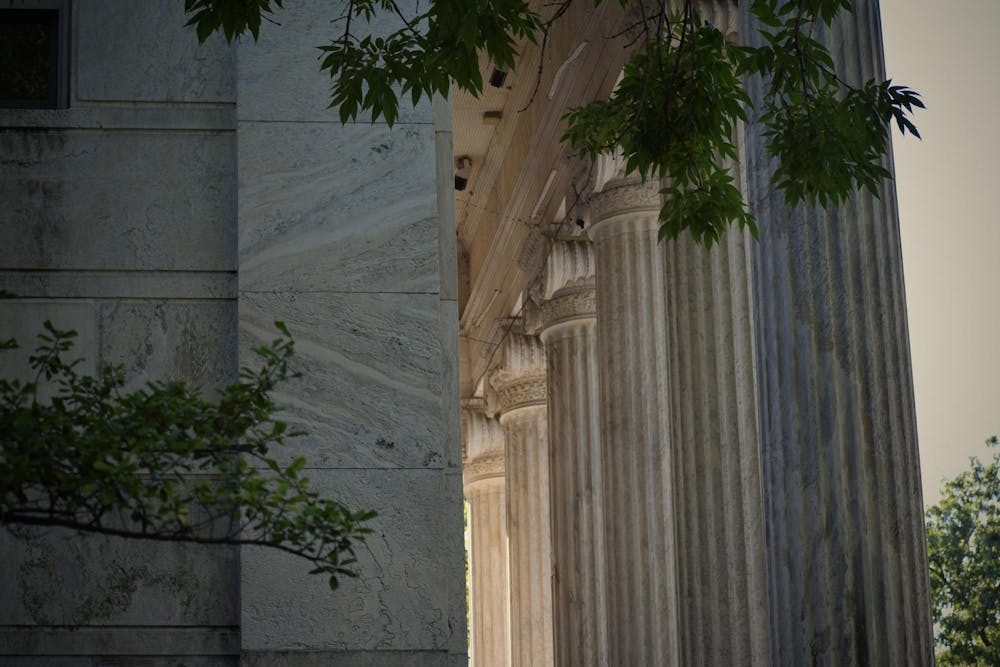Former Harvard president Claudine Gay, who stepped down on Jan. 2 amid criticisms of her response to antisemitism on Harvard's campus and her subsequent plagiarism allegations, is all over U.S. media. Gay’s resignation remained the top story on the New York Times, the Washington Post, and the Wall Street Journal websites in the following days. This media firestorm demonstrates how in the midst of the conflict in Israel and Palestine, mainstream U.S. news organizations are blatantly more interested in amplifying Ivy League scandals than reporting on the realities of violence in Gaza, where the death toll recently surpassed 22,000 — mostly consisting of women and children. This disproportionate focus on Ivy League turmoil is a sensationalist distraction. We shouldn’t let it divert our attention from the much more substantive problem of the brutal war in Gaza, and the surge in antisemitism and Islamophobia the war has provoked in the United States.
Gay’s alleged plagiarism isn’t anywhere as disastrous as it was made out to be. While academic negligence certainly creates bad optics for Harvard, the Harvard Corporation found nothing more than “inadequate citation” in its review of Gay’s work, which she immediately strove to correct. Additionally, one of the scholars who Gay was accused of plagiarizing stated that her error “isn’t even close to an example of academic plagiarism.”
Although Gay resigned amid these weaponized allegations of plagiarism, the push was really motivated by her controversial Congressional testimony about Harvard’s approach to antisemitism on campus. Christopher Rufo, a conservative activist who helped lead the effort to oust Gay, admitted that the plagiarism story was a pretext to justify his movement to the center-left: He posted on X that he intended to “smuggle [the plagiarism story] into the media apparatus of the Left, legitimizing the narrative to center-left actors who have the power to topple her.”
Gay’s alleged plagiarism was not the driving force behind the campaign for her resignation — the Congressional hearings were.
The mainstream media is just as guilty of this subterfuge. Since the story first emerged, the New York Times has published over 15 articles about Gay’s alleged plagiarism. This controversy originated with Gay’s response to a question from Republican Congresswoman Elise Stefanik that was itself pivoting from those directly affected in Israel and Gaza. When the media converts the narrative into one about plagiarism, divorcing the story from the humanitarian crisis in Gaza altogether, it directs public attention away from atrocities in the Middle East and towards a relatively trivial, much more digestible story relevant only to the upper echelons of society.
Beyond Gay’s plagiarism, the media has seized the opportunity to opine on the Ivy League as a cultural institution. Since Dec. 1, Fox News has used the words “Ivy League,” “Harvard,” or “Penn” more times than “Gaza.” Talking about the Ivy League might increase engagement from Fox News’s primarily right-wing viewer base, which is already disinclined to trust higher education, but this reflects a clear distortion of journalistic priorities. The missteps of a couple of elite university administrators do not merit more consideration than death, destruction, and displacement in the Gaza strip.
While the media exhibits a concrete preference for coverage of the Ivy League over coverage of Gaza, politicians from both parties endeavor to distract from the realities of life in Gaza. Stefanik clearly wants the Ivy League to be the story: She called Gay’s resignation “just the beginning of what will be the greatest scandal of any college or university in history.” The Biden administration is also engaging in a concerted effort to deflect, internally expressing reluctance to support an extended ceasefire because it could increase journalists’ access to Gaza and “turn public opinion on Israel.” There are bipartisan political benefits to turning attention away from Gaza and towards the Ivy League.
But on a global scale, the Ivy League isn’t that important. Collectively, these eight universities only educate about 138,000 predominantly wealthy students. That’s not to dismiss the momentous intellectual contributions of these institutions, nor to say that campus free speech and discrimination are inconsequential issues. But while the media fixates on elite schools and Claudine Gay, nearly 2 million Gazans have been forced to flee their homes, and half of Gaza’s population is at risk of starvation. The careers of just a few with money and power is outweighing the lives of millions without either in what we consider worthy of discussion and attention.

Don’t fall into the trap. The coverage discrepancy is dangerous — the crisis in Gaza demands attention from privileged Americans and with it, donations and pressure on our government to adequately address the situation. We have the power to reduce suffering, but influential U.S. actors are currently more concerned with exaggerated Ivy League transgressions than Gazans’ lives.
Princeton’s current absence from the line of fire, and the media’s outsize estimation of our significance gives our community a unique opportunity to challenge this cultural preoccupation with status and power. We can help reframe the narrative, to encourage more concentration on Gaza and less on the happenings of our campus and other U.S. college campuses.
The next time one of your parents’ friends asks about protests on campus or why Princeton hasn’t been on any front pages, take the chance to shift the conversation to conditions in Gaza or the prejudices that the conflict exposes. As Ivy League students in a moment of cultural obsession with the Ivy League, we’re endowed with undeserved power. We have an obligation to use it to amplify the voices of the powerless.
Frances Brogan is a first-year columnist and prospective Politics major. She can be reached at frances.brogan@princeton.edu.









